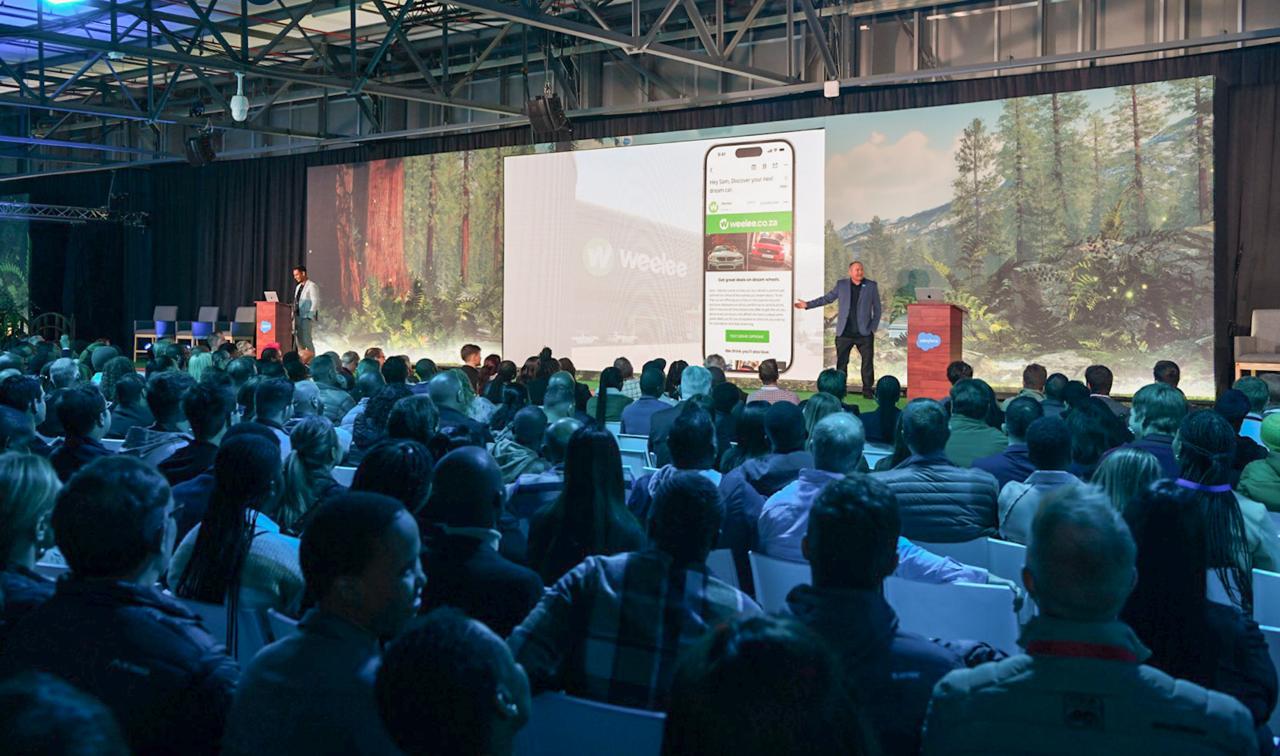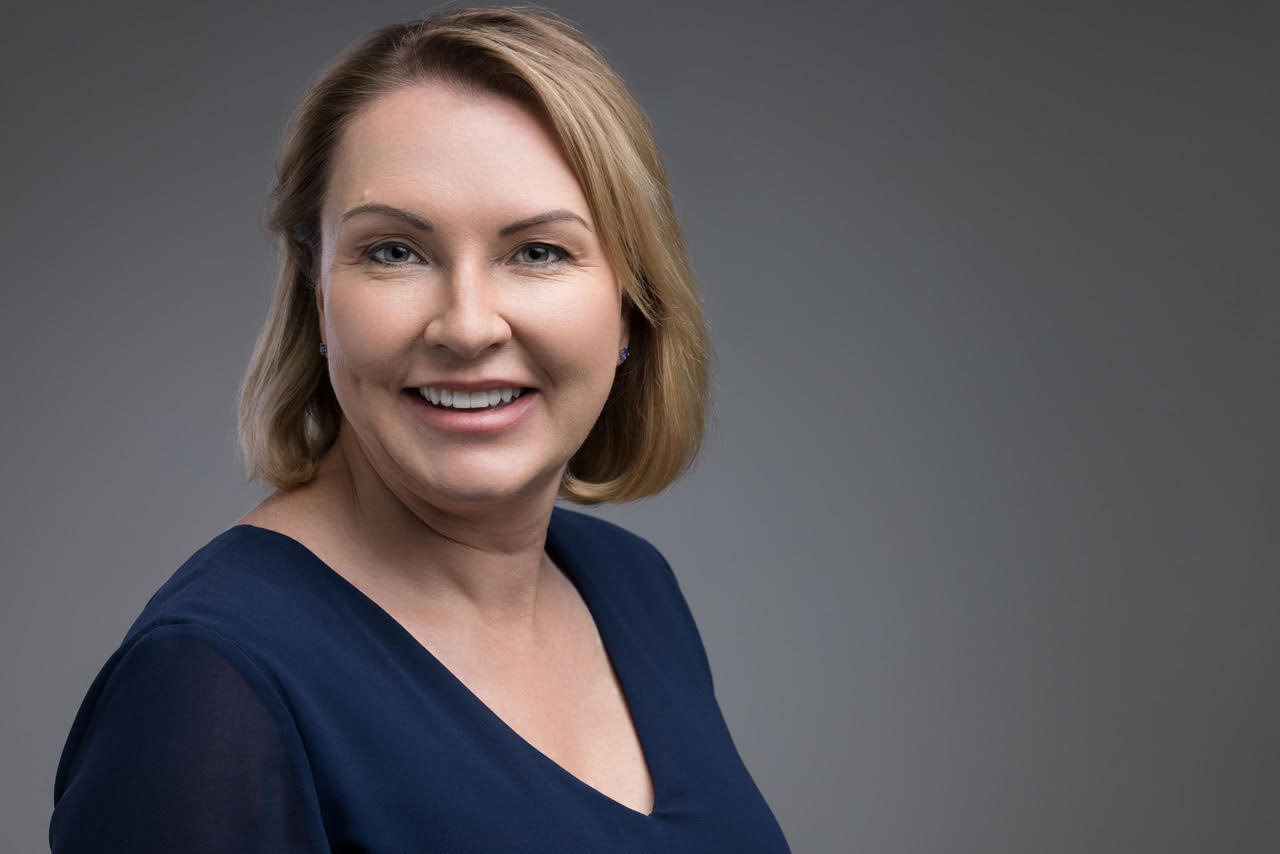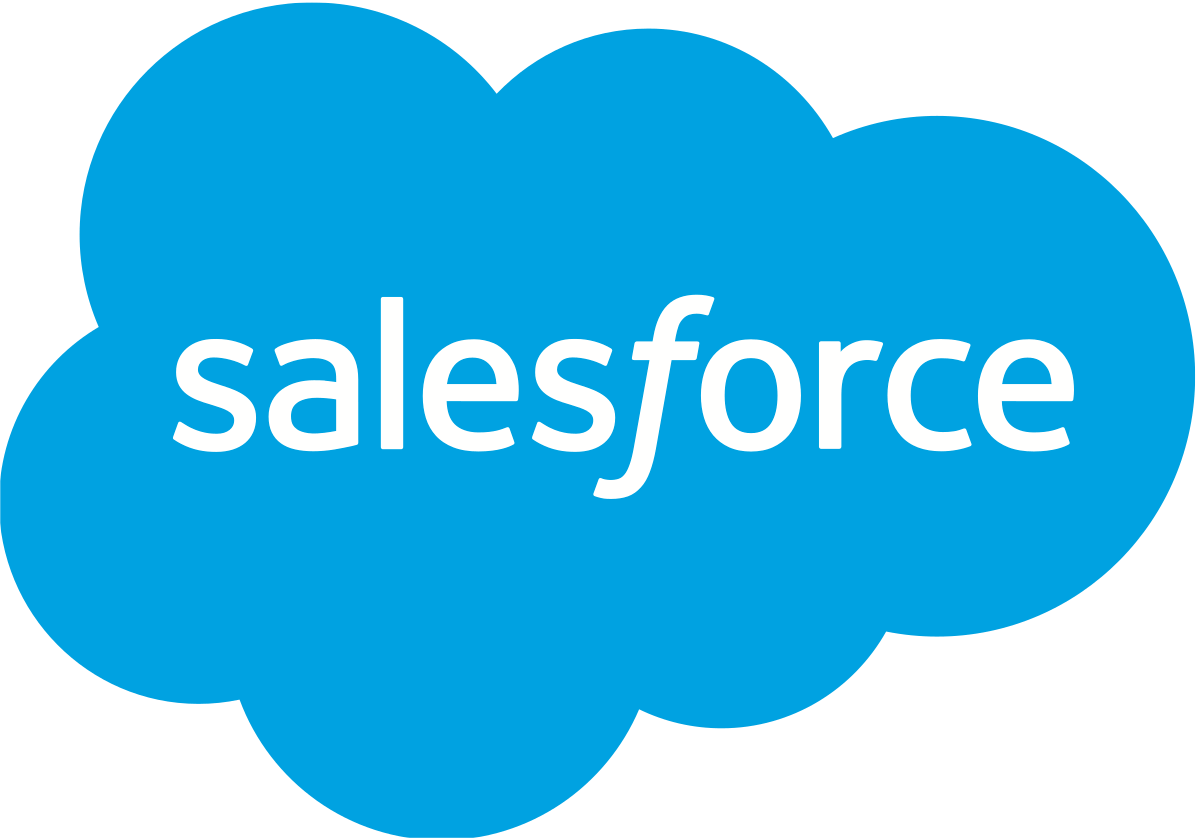Technology
Salesforce South Africa Accelerates Growth Plans

Salesforce, the global leader in AI CRM (Customer Relationship Management) has showcased the transformative power of its latest AI and cloud-based solutions to customers, partners and associates at Salesforce World Tour Essentials Johannesburg, held at the Kyalami Convention Centre in Midrand.
Over 2200 global and local leaders attended the event; demonstrating the massive interest in AI and digital transformation in South Africa, with organisations from across a range of sectors eager to learn more about new technologies that will enable them to fully leverage their data and grow their businesses.
According to the latest IDC InfoBrief, sponsored by Salesforce, The Salesforce Economy: South Africa, Salesforce and its partner ecosystem, fueled by AI-powered cloud solutions, will generate $5.8 billion in net new business between 2022 and 2028. The paper report estimates a net gain of 33,000 jobs are being generated through AI-powered cloud solutions in South Africa by 2028*
The Salesforce ecosystem of partners in the South African region has grown 34% YoY in FY24 but the most significant improvement is in the area of certifications, with an increase of 43% in total. These partners are helping organisations across all sectors to raise employee productivity and transform with real-time insights and new levels of customer experience.
“At Salesforce, we’re excited by the strides our customers and partners in South Africa are taking to succeed in the developing AI era. World Tour Essentials Johannesburg offers the perfect showcase of the region’s potential as a centre of innovation in Africa,” said Zuko Mdwaba, Area Vice President at Salesforce South Africa.
“Salesforce World Tour Essentials Johannesburg demonstrates how our customers can raise productivity, improve visibility, and transform their entire operations by smartly deploying AI and digital tools,” said Robin Fisher, senior area VP of Salesforce emerging markets.
“By embracing the power of AI, organisations in the public and private sector can seize growth opportunities and contribute to the wider project of economic diversification,” says Fisher.
Getting the right AI with the right data at World Tour Essentials Johannesburg
The keynotes, talks and presentations at Salesforce World Tour Essentials Johannesburg focused on how organisations can navigate challenges by embracing the latest AI, data and CRM solutions to build trust, drive efficiency, transform customer oversight, and grow their businesses.
Keynote speakers from Salesforce included Zuko Mdwaba, Area Vice President at Salesforce Africa, Linda Saunders, Salesforce Director, Solutions Engineering Africa, and Robin Fisher, Senior Area VP, Salesforce emerging markets.
The keynote unpacked not only Sales Forces’ vision but also the evolution of the platform and how clouds come together to open the path to trusted Enterprise AI with the Einstein 1 Platform.
Showcasing Data Cloud is a data platform that allows companies to unify disparate data points into a harmonised data model on Salesforce’s Einstein 1 Platform. As this data model lives on the Salesforce Einstein 1 Platform, it gives every team member the same 360-degree view of every customer. This allows employees to drive automation, analytics, and personalised engagements through the power of trusted AI.
“Conversational AI interactions are delivered through a single Einstein Copilot across all applications on the platform, with creation and tailoring capabilities supported within Einstein 1 Studio”, says Saunders. According to Saunders, Salesforce’s Einstein 1 Platform integrates the company’s suite of applications spanning sales, service, marketing, e-commerce, analytics, and industry solutions.
Salesforce customers operating in various sectors shared valuable insights into how they overcame their challenges, revealing how Salesforce solutions such as Data Cloud and the Einstein 1 Platform have helped them transform operations.
The keynotes, talks and presentations at Salesforce World Tour Essentials Johannesburg focused on how organisations can navigate challenges by embracing the latest AI, data and CRM solutions to build trust, drive efficiency, transform customer oversight, and grow their businesses.
Keynote speakers from Salesforce included Zuko Mdwaba, Area Vice President at Salesforce Africa, and Linda Saunders, Salesforce Director, Solutions Engineering Africa.
Salesforce customers operating in sectors including government, retail, real estate, energy, and banking offered valuable insights into how they overcame their challenges, revealing how Salesforce solutions such as Data Cloud and the Einstein 1 Platform have helped them transform operations.
Data Cloud is a data platform that unifies all of a company’s data on Salesforce’s Einstein 1 Platform, giving every team a 360-degree view of every customer to drive automation and analytics, personalize engagement, and power trusted AI. Salesforce’s Einstein 1 Platform integrates the company’s suite of applications spanning sales, service, marketing, e-commerce, analytics, and industry solutions.
85% of SA marketers have adopted AI, but mistrust persists
85% of marketers in South Africa are already experimenting with or have fully implemented AI into their workflows, according to the Salesforce State of Marketing Report announced at the World Tour Essentials conference.
According to the report, the three most popular AI use cases among marketers in South Africa are content generation, automation of customer interactions, programmatic advertising and media buying. Loyalty programmes are the most common AI tactic to collect data.
Businesses have long struggled to connect disparate data points to create consistent, personalised experiences across customer journeys. Yet as third-party cookies are depreciated and AI proliferates, that quest is only becoming more critical—and challenging.
The report found that while 64% of marketers in South Africa have access to real-time data to execute a campaign, 50% need the IT department’s help to do so.
Skills development partnerships for real economic impact
Salesforce remains steadfastly committed to helping solve one of South Africa’s key challenges – the digital skills gap and job creation. Ursula Fear, Senior Talent Programme Manager at Salesforce South Africa, announced the launch of its second cohort with ALX, after just having completed its first cohort of 1000 students across Africa over six months, creating job-ready professionals. It starts with ALX Foundations, which provides career development skills to help students thrive in the digital workforce. It then teaches students security, customising CRM dashboards, data management, and data analysis.
Collective X, an ambitious private sector-led initiative spearheaded by Salesforce has, since launching a year ago, been successful in building future-fit skills for the local economy. “Business is a platform for change and only by partnering together and building not only the digital skills needed but also equipping people with the necessary experience, can we address the unemployment crisis in the country,” adds Fear.
Technology
Expert Reveals Top Cyber Threats Organisations Will Encounter in 2026

By Adedapo Adesanya
Organisations in 2026 face a cybersecurity landscape markedly different from previous years, driven by rapid artificial intelligence adoption, entrenched remote work models, and increasingly interconnected digital systems, with experts warning that these shifts have expanded attack surfaces faster than many security teams can effectively monitor.
According to the World Economic Forum’s Global Cybersecurity Outlook 2026, AI-related vulnerabilities now rank among the most urgent concerns, with 87 per cent of cybersecurity professionals worldwide highlighting them as a top risk.
In a note shared with Business Post, Mr Danny Mitchell, Cybersecurity Writer at Heimdal, said artificial intelligence presents a “category shift” in cyber risk.
“Attackers are manipulating the logic systems that increasingly run critical business processes,” he explained, noting that AI models controlling loan decisions or infrastructure have become high-value targets. Machine learning systems can be poisoned with corrupted training data or manipulated through adversarial inputs, often without immediate detection.
Mr Mitchell also warned that AI-powered phishing and fraud are growing more sophisticated. Deepfake technology and advanced language models now produce convincing emails, voice calls and videos that evade traditional detection.
“The sophistication of modern phishing means organisations can no longer rely solely on employee awareness training,” he said, urging multi-channel verification for sensitive transactions.
Supply chain vulnerabilities remain another major threat. Modern software ecosystems rely on numerous vendors and open-source components, each representing a potential entry point.
“Most organisations lack complete visibility into their software supply chain,” Mr Mitchell said, adding that attackers frequently exploit trusted vendors or update mechanisms to bypass perimeter defences.
Meanwhile, unpatched software vulnerabilities continue to expose organisations to risk, as attackers use automated tools to scan for weaknesses within hours of public disclosure. Legacy systems and critical infrastructure are especially difficult to secure.
Ransomware operations have also evolved, with criminals spending weeks inside networks before launching attacks.
“Modern ransomware operations function like businesses,” Mitchell observed, employing double extortion tactics to maximise pressure on victims.
Mr Mitchell concluded that the common thread across 2026 threats is complexity, noting that organisations need to abandon the idea that they can defend against everything equally, as this approach spreads resources too thin and leaves critical assets exposed.
“You cannot protect what you don’t know exists,” he said, urging organisations to prioritise visibility, map dependencies, and focus resources on the most critical assets.
Technology
NCC Begins Review of National Telecommunications Policy After 26 Years

By Adedapo Adesanya
In a consultation paper released to the public, the commission said it is seeking input from stakeholders, including telecom operators, tech companies, legal experts, and the general public, on proposed revisions designed to reposition Nigeria’s telecommunications framework to match current digital demands. Submissions are expected by March 20, 2026.
The NTP 2000 marked a turning point in Nigeria’s telecom landscape. It replaced the 1998 policy, introducing full liberalisation and a unified regulatory framework under the NCC, and paved the way for the licensing of GSM operators such as MTN, Econet (now Airtel), and Globacom in 2001 and 2002.
Prior to the NTP, the sector was dominated by Nigerian Telecommunications Limited (NITEL), a government-owned monopoly plagued by obsolete equipment, low teledensity, and poor service. At the time, Nigeria had fewer than 400,000 telephone lines for the entire country.
However, the NCC noted that just as the 1998 policy was overtaken by global developments, the 2000 framework has become structurally misaligned with today’s telecom reality, which encompasses broadband, 5G networks, satellite internet, artificial intelligence, and a thriving digital economy worth billions of dollars.
“The rapid pace of technological change and emerging digital services necessitate a comprehensive update to ensure the policy continues to support economic growth while protecting critical infrastructure,” the Commission stated.
The review will target multiple chapters of the policy. Key revisions include: Enhancements on online safety, content moderation, digital services regulation, and improved internet exchange protocols; a modern framework for satellite harmonisation, coexistence with terrestrial networks, and clearer spectrum allocation to boost service quality, and policies to address fiscal support, reduce multiple taxation, and lower operational costs for operators.
The NCC is also proposing entirely new sections to the policy to address emerging priorities. Among the key initiatives are clear broadband objectives aimed at achieving 70 per cent national broadband penetration, with a focus on extending connectivity beyond urban centres to reach rural communities.
The review also seeks to formally recognise telecom infrastructure, including fibre optic cables and network masts, as Critical National Infrastructure to prevent vandalism and enhance security.
In addition, the commission is targeting the harmonisation of Right-of-Way charges across federal, state, and local governments, alongside the introduction of a one-stop permitting process for telecom deployment, designed to reduce bureaucratic delays and lower operational costs for operators.
According to the NCC, the review aims to make fast and affordable internet widely accessible. “The old framework was largely voice-centric. Today, data is the currency of the digital economy,” the commission said, highlighting the need to close the urban-rural broadband divide.
The consultation process is intended to gather diverse perspectives to ensure the updated policy reflects current technological trends, market realities, and consumer needs. By doing so, the NCC hopes to maintain the telecommunications sector’s role as a key driver of economic growth and digital inclusion.
Technology
FG to Scrutinise MTN’s $2.2bn Full Take Over of IHS Towers

By Adedapo Adesanya
The Minister of Communications, Innovation and Digital Economy, Mr Bosun Tijani, says the Nigerian government is assessing MTN Group’s acquisition of IHS Towers to ensure the deal aligns with Nigeria’s telecommunications development goals.
On Tuesday, MTN Group said it has agreed to acquire the remaining 75.3 per cent stake in IHS Holding Limited in an all-cash deal valued at $2.2 billion. The deal will be funded through the rollover of MTN’s existing stake of around 24 per cent in IHS, as well as about $1.1 billion in cash from MTN, roughly $1.1 billion from IHS’s balance sheet, and the rollover of no more than existing IHS debt.
Mr Tijani, in a statement, said the administration of President Bola Tinubu has spent the past two years strengthening the telecom sector through policy clarity, regulatory support, and engagement with industry stakeholders, boosting investor confidence and sector performance.
“Recent financial results from key operators show improved profitability, increased investment in telecoms infrastructure, and operational stability across the sector,” he said.
“These gains reflect the resilience of the industry and the impact of government reforms.”
The minister added that telecommunications infrastructure is critical for national security, economic growth, financial services, innovation, and social inclusion.
“We will undertake a thorough assessment of this development with relevant regulatory authorities to review its impact on the sector,” Mr Tijani said.
He added that the review aims to ensure market consolidation or structural changes, protect consumers, safeguard investments, and preserve the long-term sustainability of the telecom industry.
Mr Tijani also said the government remains committed to maintaining a stable and forward-looking policy environment to keep Nigeria’s telecommunications sector strong and sustainable, in line with the administration’s broader digital economy vision.
Upon completion, the transaction will see MTN transition from being a minority shareholder in IHS to a full owner. It will also see IHS exit from the New York Stock Exchange and become a wholly owned subsidiary of MTN.
For MTN, the deal represents a decisive shift as data demand surges and digital infrastructure becomes increasingly strategic with a booming digitally-oriented youth population on the continent.
-

 Feature/OPED6 years ago
Feature/OPED6 years agoDavos was Different this year
-
Travel/Tourism10 years ago
Lagos Seals Western Lodge Hotel In Ikorodu
-

 Showbiz3 years ago
Showbiz3 years agoEstranged Lover Releases Videos of Empress Njamah Bathing
-

 Banking8 years ago
Banking8 years agoSort Codes of GTBank Branches in Nigeria
-

 Economy3 years ago
Economy3 years agoSubsidy Removal: CNG at N130 Per Litre Cheaper Than Petrol—IPMAN
-

 Banking3 years ago
Banking3 years agoSort Codes of UBA Branches in Nigeria
-

 Banking3 years ago
Banking3 years agoFirst Bank Announces Planned Downtime
-

 Sports3 years ago
Sports3 years agoHighest Paid Nigerian Footballer – How Much Do Nigerian Footballers Earn



















